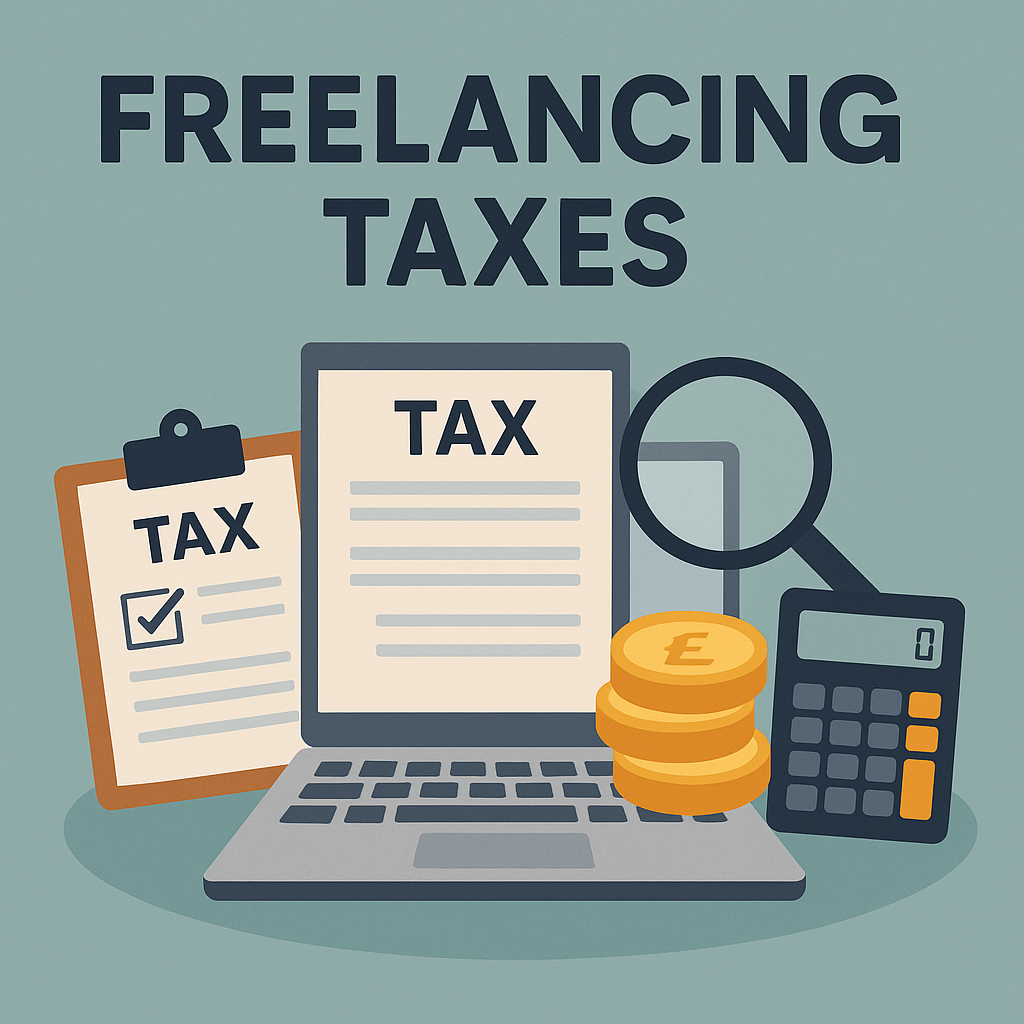Why Freelancing Income Is Taxable
Freelancing, whether full-time or alongside a regular job, counts as self-employment in the eyes of HMRC. Even if you consider it a “side hustle,” it is still trading activity, and any money earned must be reported.As soon as your freelance earnings exceed £1,000 in a tax year, you must register as self-employed. Below that threshold, your income is covered by the UK’s trading allowance. Once registered, you are legally required to file a Self Assessment return and pay tax on your profits.
Failing to declare freelance income can lead to penalties, interest, and the loss of potential tax deductions that could have reduced your bill.
When Freelancing Income Must Be Declared
The key threshold to remember is £1,000. This is the trading allowance, meaning you can earn up to that amount from self-employment without declaring it.Once your freelance earnings exceed this figure, you must:
- Register for Self Assessment with HMRC by 5 October following the end of the tax year in which you earned the income
- File your return by 31 January the following year (if filing online)
- Pay any tax and National Insurance owed by the same date
The Taxes Freelancers Pay
Income Tax
Freelancers pay Income Tax on profits, not turnover. Profits are calculated as your total freelance income minus any allowable business expenses.The main tax rates for 2025 are:
- 20% on income up to £50,270 (basic rate)
- 40% on income between £50,271 and £125,140 (higher rate)
- 45% on income above £125,140 (additional rate)
National Insurance Contributions (NICs)
If your freelance profits exceed HMRC’s threshold (around £6,725 for Class 2 NICs), you will pay:- Class 2 NICs: a small flat rate per week
- Class 4 NICs: a percentage of your profits (around 9% up to a limit, and 2% above it)
VAT (Value Added Tax)
You must register for VAT when your total turnover reaches £90,000 in any 12-month period.Once registered, you will:
- Charge VAT on your invoices (usually 20%)
- Submit VAT returns, typically every quarter
- Reclaim VAT on business expenses, where eligible
Claiming Allowable Business Expenses
One of the main advantages of freelancing is that you can deduct business expenses to reduce your taxable profit. These must be costs that are “wholly and exclusively” for your business.Common examples include:
- Equipment (laptops, software, tools)
- Internet, phone, and utilities (business use only)
- Office rent or home office proportion
- Travel and mileage for business purposes
- Advertising, marketing, and website costs
- Accounting and legal fees
How to Register and File as a Freelancer
- Register with HMRC as self-employed using your Government Gateway account.
- Receive your Unique Taxpayer Reference (UTR).
- Record your income and expenses throughout the year.
- File your Self Assessment tax return by 31 January following the tax year.
- Pay any tax and National Insurance owed by the same date.
Freelancing While Employed
Many freelancers also have a regular PAYE job. In this case:- You still need to declare your freelance income via Self Assessment.
- HMRC will calculate your total taxable income across both jobs.
- Your tax code may be adjusted to reflect the additional income.
Common Mistakes to Avoid
Many freelancers, especially those just starting out, make avoidable tax errors such as:- Failing to register for Self Assessment once they exceed £1,000 in income
- Treating their freelance work as “casual” or “informal” income
- Missing filing deadlines and paying penalties
- Not separating business and personal finances
- Forgetting to record small but legitimate expenses
- Ignoring VAT registration when turnover crosses the limit
When to Consider a Limited Company
If your freelance income grows significantly, you might consider incorporating as a limited company.Advantages include:
- Potentially lower overall tax through dividends
- Limited liability protection for your personal assets
- A more professional image for clients
FAQs
Do I need to register if I earn less than £1,000?Not necessarily — your income is covered by the trading allowance. However, registering can still be useful if you plan to claim expenses or expect to earn more in future.
What happens if I miss the Self Assessment deadline?
HMRC issues an automatic £100 penalty, with further fines for continued delay. Interest also accrues on unpaid tax.
Do I pay tax on freelance income from abroad?
Yes. UK residents are taxed on worldwide income, although double taxation relief may apply if you have already paid tax overseas.
Can I claim for working from home?
Yes. You can claim a proportion of household costs or use HMRC’s simplified flat-rate system for home working.
Conclusion
Freelancing offers flexibility and control, but it also comes with tax responsibilities. Once your side income exceeds £1,000, you must register, keep records, and pay tax on your profits.At Persona Finance, we make freelancing tax straightforward. Our accountants handle registration, tax returns, and VAT setup, so you can focus on your business without worrying about deadlines or penalties.
👉 Book a consultation with Persona Finance today to manage your freelance taxes the smart way.



